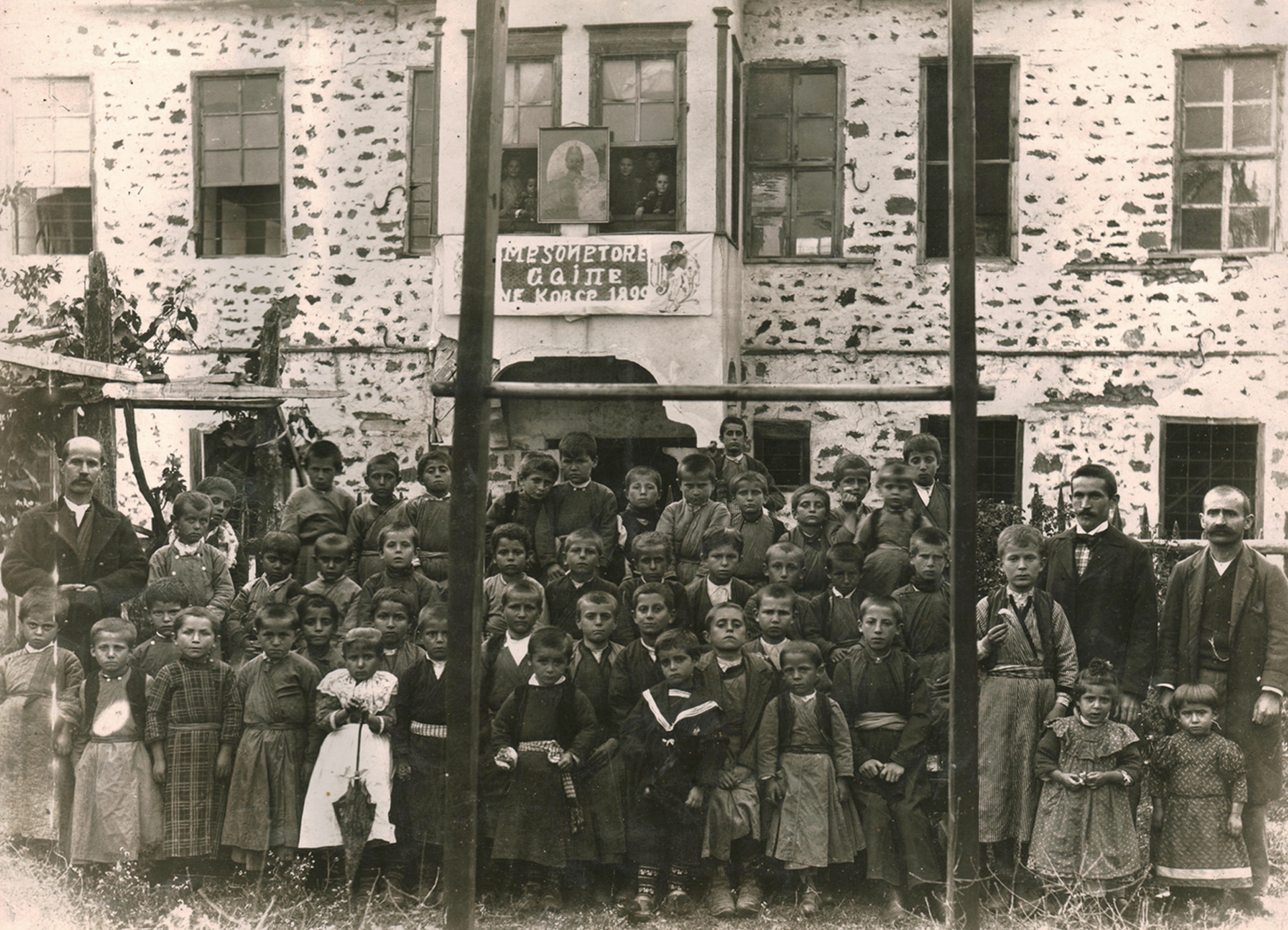|
Naum Dhimitër Naçi
Naum Dhimitër Naçi (1871–1927), also known as Nuçi Naçi, was an Albanian teacher and patriot. He was the brother of Leonidha Naçi. With his intellectual and political activities, he played an important role during the late period of the Albanian National Awakening that sought independence from the Ottoman Empire and the creation of an Albanian national state. He wrote some books that discussed contemporary issues of education among Albanian communities in the Ottoman Empire, headed a Yanina-based patriotic newspaper named ''Zgjimi i Shqiperise'', and participated in several nationalist groups. His 1901 '' Korça dhe fshatrat perreth saje'' was published in Sofia, where other major works in the development of Albanian nationalism and Albanian literature were concurrently published, including Naim Frasheri's ''Historia e Shqiperise'' and ''Deshira e vertete e Shqiptareve'', Gjerasim Qiriazi's ''Hristomathi'', and Sami Frasheri's ''Besa'' and ''Tosk primer''. Naçi served ... [...More Info...] [...Related Items...] OR: [Wikipedia] [Google] [Baidu] |
Naum Naçi 2022 Stamp Of Albania
Naum may refer to: People Given name *Saint Naum (–910), medieval Bulgarian writer and missionary * Naum (biblical figure) or Nahum, a minor prophet; or a figure mentioned in the genealogy of Jesus * Naum (metropolitan) (born 1961), Macedonian Orthodox metropolitan of the Diocese of Strumica *Naum Akhiezer (1901–1980), Soviet mathematician * Naum Babaev (born 1977), Russian entrepreneur * Naum Batkoski (born 1978), Macedonian footballer * Naum Birman (1924–1989), Soviet theater and film director * Naum Bozda (1784–1853), Serbian merchant and philanthropist *Naum Faiq (1868–1930), Assyrian nationalist * Naum Il'ich Feldman (1918–1994), Soviet mathematician *Naum Gabo (1890–1977), Russian sculptor * Naum Gurvich (1905–1981), Soviet-Jewish cardiac physician * Naum Idelson (1885–1951), Soviet astronomer *Naum Kleiman (born 1937), Russian historian of cinema *Naum Koen (born 1981), UAE-based Israeli-Ukrainian businessman * Naum Kove (born 1963), Albanian footballer * Na ... [...More Info...] [...Related Items...] OR: [Wikipedia] [Google] [Baidu] |
Korçë
Korçë (; sq-definite, Korça) is the List of cities and towns in Albania, eighth most populous city of Albania and the seat of Korçë County and Korçë Municipality. The total population of the city is 51,152 and 75,994 of Korçë municipality (2011 census), in a total area of . It stands on a plateau some Above mean sea level, above sea level, surrounded by the Morava Mountains. The area of the Old Bazaar of Korçë, Old Bazaar, including Mirahori Mosque, Korçë, Mirahori Mosque, is considered as the urban core of the city. Founded by the local Ottoman Empire, Ottoman Albanians, Albanian nobleman Iljaz Bej Mirahori, Ilias Bey Mirahori, the urban area of Korçë dates back to the late 15th century and the beginning of the 16th century, however its actual physiognomy was realized in the 19th century, during a period that corresponds with the rapid growth and development of the city. The Old Bazaar has played a dominant role in Albania's market history. Korçë is the larges ... [...More Info...] [...Related Items...] OR: [Wikipedia] [Google] [Baidu] |
People From Korçë
The term "the people" refers to the public or common mass of people of a polity. As such it is a concept of human rights law, international law as well as constitutional law, particularly used for claims of popular sovereignty. In contrast, a people is any plurality of persons considered as a whole. Used in politics and law, the term "a people" refers to the collective or community of an ethnic group or nation. Concepts Legal Chapter One, Article One of the Charter of the United Nations states that "peoples" have the right to self-determination. Though the mere status as peoples and the right to self-determination, as for example in the case of Indigenous peoples (''peoples'', as in all groups of indigenous people, not merely all indigenous persons as in ''indigenous people''), does not automatically provide for independent sovereignty and therefore secession. Indeed, judge Ivor Jennings identified the inherent problems in the right of "peoples" to self-determination, as i ... [...More Info...] [...Related Items...] OR: [Wikipedia] [Google] [Baidu] |
Albanian Schoolteachers
Albanian may refer to: *Pertaining to Albania in Southeast Europe; in particular: **Albanians, an ethnic group native to the Balkans **Albanian language **Albanian culture **Demographics of Albania, includes other ethnic groups within the country *Pertaining to other places: **Albania (other) **Albany (other) **St Albans (other) *Albanian cattle *Albanian horse *''The Albanian'', a 2010 German-Albanian film See also * *Olbanian language * Albani people *Albaniana (other) *Alba (other) Alba is the Scottish Gaelic name for Scotland. Alba or ALBA may also refer to: Arts, entertainment and media Fictional characters * Alba (Darkstalkers), Alba ''(Darkstalkers)'', a character in the Japanese video game * Alba (The Time Traveler's ... {{Disambiguation Language and nationality disambiguation pages ... [...More Info...] [...Related Items...] OR: [Wikipedia] [Google] [Baidu] |
19th-century Albanian Educators
The 19th century began on 1 January 1801 (represented by the Roman numerals MDCCCI), and ended on 31 December 1900 (MCM). It was the 9th century of the 2nd millennium. It was characterized by vast social upheaval. Slavery was abolished in much of Europe and the Americas. The First Industrial Revolution, though it began in the late 18th century, expanded beyond its British homeland for the first time during the 19th century, particularly remaking the economies and societies of the Low Countries, France, the Rhineland, Northern Italy, and the Northeastern United States. A few decades later, the Second Industrial Revolution led to ever more massive urbanization and much higher levels of productivity, profit, and prosperity, a pattern that continued into the 20th century. The Catholic Church, in response to the growing influence and power of modernism, secularism and materialism, formed the First Vatican Council in the late 19th century to deal with such problems and confirm cer ... [...More Info...] [...Related Items...] OR: [Wikipedia] [Google] [Baidu] |

